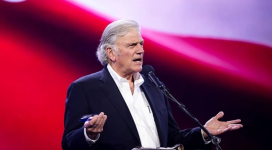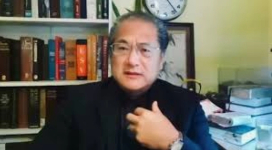WOODBRIDGE, Va. – The American Anglican Council opened the largest conference of conservative Episcopalians on Friday to discuss a possible formal split within the national Episcopal Church. The “Plano-East Conference” brought together nearly 3,000 Episcopalians opposed to the church’s election of an openly gay bishop, and began talks on forming a new network of parishes to clearly represent the denomination.
"This is a sign the orthodox are mobilizing and are not going to give up their church," said Bishop Robert Duncan of Pittsburgh, a vocal opponent of the consecration of the gay bishop.
Duncan, president of the American Anglican Council, opened the conference with a Eucharist at the Hylton Memorial Chapel just outside Washington D.C. The American Anglican Council, as the largest “orthodox” Episcopal group, may soon become the sole U.S. Episcopal group recognized by the 77 million-member global Anglican Communion.
Breakout sessions were scheduled for Saturday on the future of the church and the development of the new network of parishes, which would be known as the Network of Anglican Communion Dioceses and Parishes.
Another meeting is scheduled for the end of the month in Plano, Texas, where the heads of 12 dioceses are expected to formally launch the network, said the Rev. John Guernsey of All Saints Episcopal Church in Dale City, Va.
The members hope to adopt an organizational charter and a theological platform for the group based on a strict reading of the Scriptures.
"We're not simply against something. We're not a bunch of cranky reactionaries," Guernsey said. "But we reject the idea that acceptance means we need to approve of every behavior."
Tension within the denomination grew since last summer, when openly gay Gene Robinson was nominated to bishop-elect of New Hampshire. However, despite forewarnings of a complete schism, a majority of Episcopal bishops decided for Robinson’s consecration in November. Since then, conservative parishes and priests within the denomination withheld donations to the national church, and asked to separate from liberal parishes. Internationally, Anglican church leaders have threatened to cut ties with the 2.3 million-member Episcopal Church, the U.S. branch of the Anglican Communion.
Eventually, Duncan said, it will be up to Anglican leaders around the world whether to recognize the new network as America's constituent group in the Anglican Communion.







